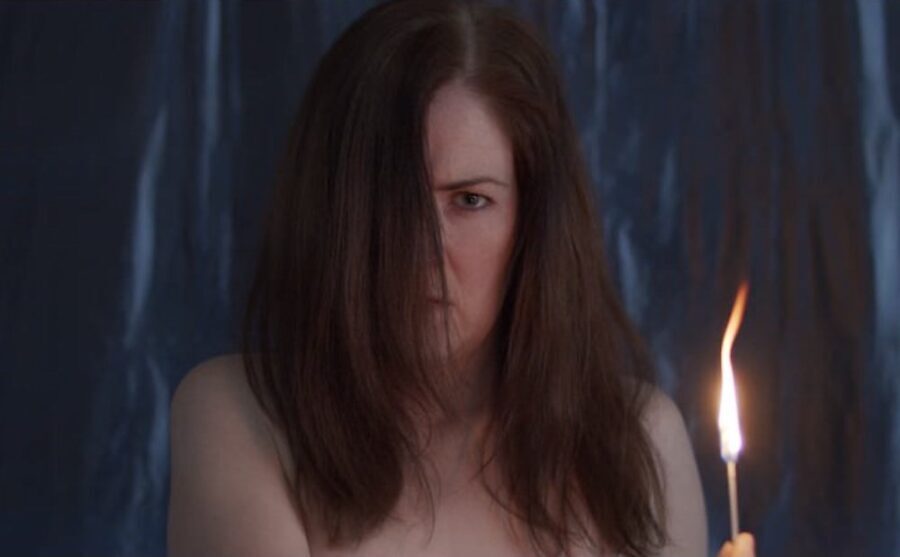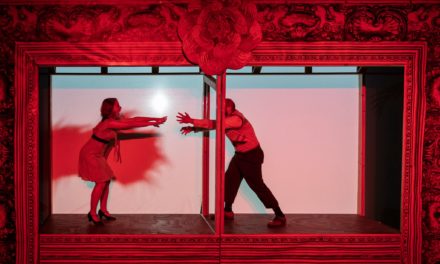The camera can take you to places where the naked eye rarely goes. Like close. Very close. Close up. And then some. This is exemplified by Fraser Watson’s brilliant filming of The Separation, a 17-minute short written by Dan Horrigan and Haven Taranta. From the start, we get a close-up of Sheila Anderson, a north London theatre worker who also manages media content for a charity, and she’s giving us a disturbing fragment of a traumatic moment.
As she describes this invasive incident, we feel uneasy because the close-up of her lips and jaw, so near that we can see the pores of her skin, is itself invasive — and we are voyeurs. Then she talks about her relationship with Carla, a hard-working writer who looks set to break into the big time. We breathe a sigh of relief, then slowly, oh so very slowly, this turns once more into anxiety. As her account of her everyday life deepens and deepens, our discomfort increases. Not only because the camera is often too close for comfort, but also because of the psychological precision of the writing, its ambiguity, its fierce intelligence, and its psychological intensity.
As this piece explores the boundaries between what is thought and what is spoken, it also shifts between the objective and the subjective in a powerfully compelling way. By the end, the subtle resonances with Sarah Kane’s 4.48 Psychosis, from thoughts pasted to the back of the skull to the coming light, increase its power. The hallucinatory vividness of the writing is enhanced by verbal images of fresh meat and visual images of cold, icy rooms.
Above all, Nathalia Campbell-Smith’s excellent, courageous, performance as Sheila is coolly fascinating, drawing us ever so slowly into a world of immense mental agony. Accompanied by Dom Bouffard’s superb music, this is a fraught and frightening story that challenges us with its representation of trauma, while also delighting us with its skillful art. A dark masterpiece.
The Separation is streaming from the Living Record website.
This article was originally posted by Aleks Sierz on April 21, 2021, and has been reposted with permission. To read the original article, click here.
This post was written by the author in their personal capacity.The opinions expressed in this article are the author’s own and do not reflect the view of The Theatre Times, their staff or collaborators.
This post was written by Aleks Sierz.
The views expressed here belong to the author and do not necessarily reflect our views and opinions.


















